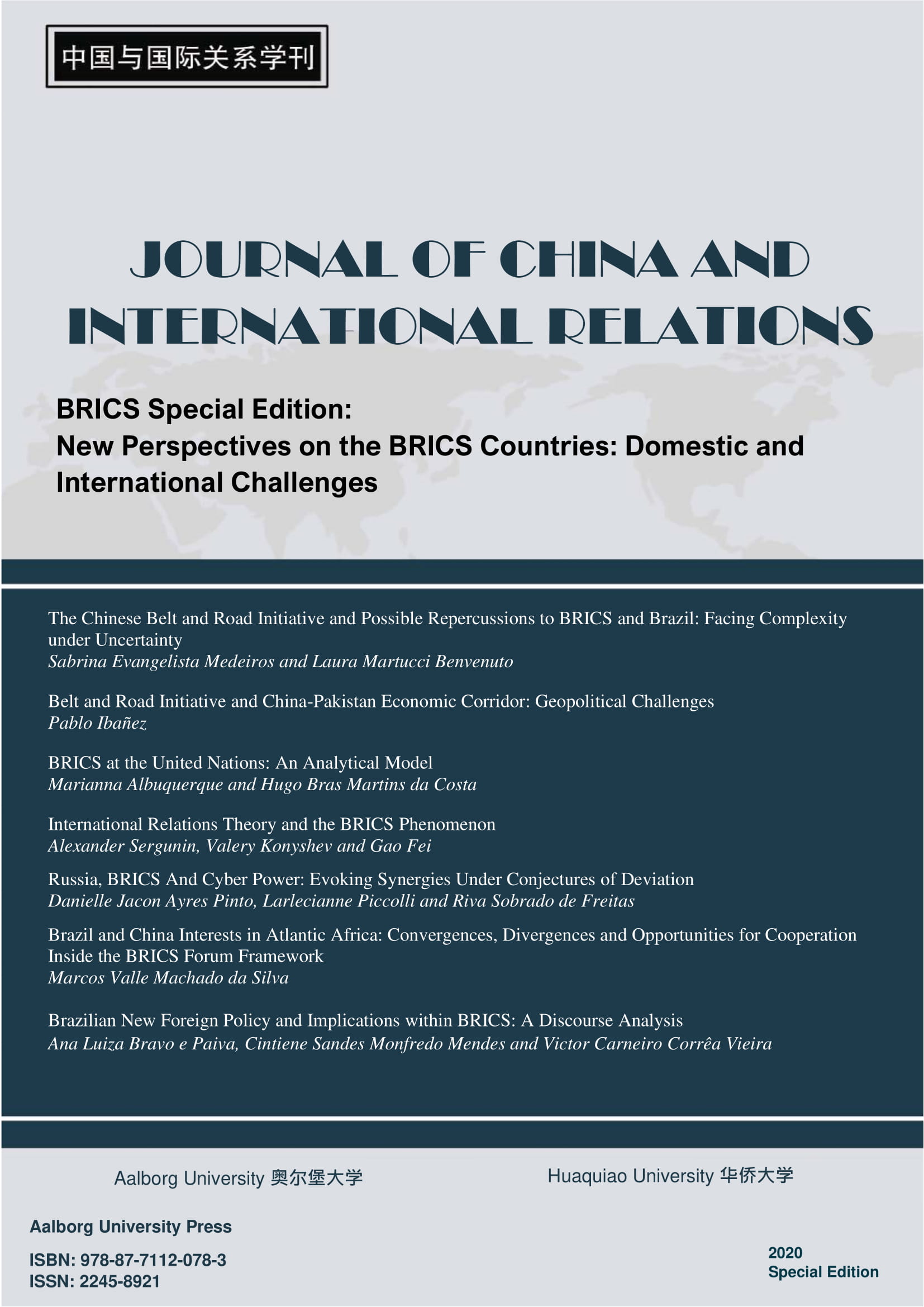Brazilian New Foreign Policy and Implications within BRICS
A Discourse Analysis
DOI:
https://doi.org/10.5278/jcir.v8iSE.4242Abstract
On the dawn of the 2008 financial crisis, Brazil, Russia, India, and China celebrated the first BRIC's Summit, in 2009, till the bloc foundation in 2006. At that time, the four countries were responsible for 65 percent of the world’s total economic growth and was aimed at the reform of the international institutions so that they would reflect the emerging countries' economic rise in international politics. The group was directly related to each of the members' goals of development‚ which was a historical purpose of Brazilian foreign policy articulated at that time in Celso Amorim's "Active and Generous Foreign Policy." Nevertheless, the election of Jair Bolsonaro for the Brazilian presidency in 2018 brought a revision of the country's foreign policy. Since Ernesto Araujo took office as Brazil's current Minister of Foreign, in January 2019, he proposed a rebrand under the name of "New Foreign Policy," reformulating basic principles as a return to the concepts of Americanism over the previous Multilateralism, a denouncement of "Globalism," and a strong defense of Christianity. This article will provide a discourse analysis of the first year of this mandate to observe how Brazil's "New Foreign Policy" could affect the BRICS bloc. The preliminary evidence points to the retraction of the BRICS agenda in Brazilian external actions due to the new Brazilian political approach.
Keywords: Brazilian Foreign Policy, BRICS, Americanism, Multilateralism
Downloads
Published
Issue
Section
License
Articles published in Journal of China and International Relation are following the license Creative Commons Attribution-NonCommercial-NoDerivs 3.0 Unported (CC BY-NC-ND 3.0)
Authors retain copyright and grant the journal right of first publication with the work simultaneously licensed under a Creative Commons Attribution License: Attribution - NonCommercial - NoDerivs (by-nc-nd). Further information about Creative Commons



